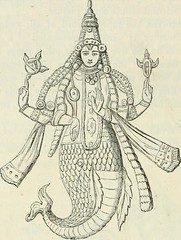Anglų - Lietuvių žodynas
Kompiuterinis žodynas internete nemokamai
Russia
Russia tarimas:
/'rəʃə /
Russia audio:
Žodžio paaiškinimas anglų kalba:
- : A former empire of eastern Europe and northern Asia. Originally settled by Slavs from the third to the eighth century, the region was long a conglomerate of independent principalities until Moscow gained ascendancy in the 14th, 15th, and 16th centuries. The empire achieved the height of its power and territorial influence under Peter the Great and Catherine the Great in the 17th and 18th centuries. The early 1800s were a period of reactionism, and although some liberal reforms were effected in the late 1800s, discontent remained and led directly to the Revolutions of 1905 and 1917, an internal power struggle, and the formation of the USSR in 1922.
- : A country of eastern Europe and northern Asia stretching from the Baltic Sea to the Pacific Ocean. It was proclaimed a republic in 1917 after the Russian Revolution, and as a constituent republic of the USSR (1922-1991), it constituted 75 percent of the country's total land area. In 1990 Boris Yeltsin became president of the Russian republic, and in 1991 he was reelected to the position in the republic's first popular election. When the Soviet Union disintegrated later that year, Yeltsin took control of the central government, and with Belarus and Ukraine, Russia formed (December 1991) the Commonwealth of Independent States, which was then joined by most of the other breakaway Soviet republics. In March 1992 Russia signed a treaty with most of the remaining Soviet republics, establishing the Russian Federation. Moscow is the capital. Population: 141,000,000.
- : See
Union of Soviet Socialist Republics .
Lietuviškos reikšmės:
- Rusija (valstybė)
Russia
www.alkonas.lt/zodzio/russia/vertimas
asian russia
www.alkonas.lt/zodzio/asian-russia/vertimas
european russia
www.alkonas.lt/zodzio/european-russia/vertimas
russia leather
www.alkonas.lt/zodzio/russia-leather/vertimas
soviet russia
www.alkonas.lt/zodzio/soviet-russia/vertimas
white russia
www.alkonas.lt/zodzio/white-russia/vertimas
Žodyno testas
Ką reiškia lietuviškai?
Parinkite teisingą atsakymą
ablution
/ə'blu:ʃn/

